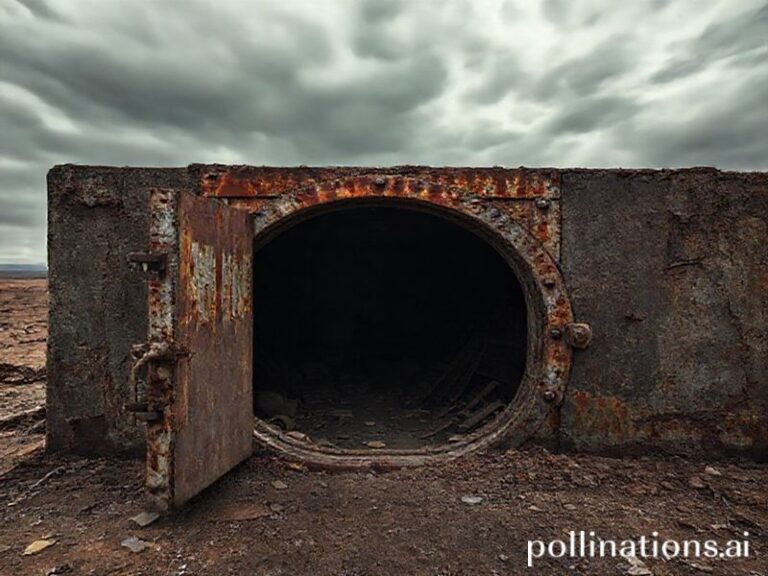Charity Begins at Home… But Is It Ending in the Bank? The Global Scandal That’s Got Us All Side-Eyeing Our Donations
**Title: “Charity Begins at Home… But Is It Ending in the Bank? The Global Scandal That’s Got Us All Side-Eyeing Our Donations”**
Alright, folks, buckle up. We’re diving headfirst into a topic that’s got everyone from your local cat-lady charity worker to the CEO of the Red Cross sweating like a sinner in church. The Charity Commission’s financial mismanagement inquiry is trending globally, and it’s not just because people suddenly care about spreadsheets. No, no, no. This is about trust, transparency, and the cold, hard truth that sometimes, the people handling your hard-earned donations might be handling them… poorly.
**Why’s It Trending?**
First off, let’s talk about why this is suddenly everywhere. The Charity Commission, the UK’s charity watchdog, has been investigating financial mismanagement in charities. And when we say “investigating,” we mean “digging up skeletons like it’s Halloween.” From misused funds to lack of transparency, it’s a hot mess, and the internet has a front-row seat.
But why’s it trending globally? Well, for starters, the UK is a hub for international charities. When the big guys get caught with their hands in the cookie jar, it sends shockwaves worldwide. Plus, in the age of social media, news travels faster than a tweet from a celebrity’s burner account. Add in a dash of public outrage, a pinch of viral hashtags, and boom—you’ve got a global trend.
**Cultural Context**
Let’s rewind a bit. Charities have always been the golden boys of society. They’re the ones saving kittens, feeding the hungry, and generally making the world a better place. Or so we thought. The idea that these organizations, built on trust and goodwill, could be mismanaging funds is like finding out Santa’s been naughty. It’s a cultural gut-punch.
In a world where people are increasingly skeptical of institutions, charities were one of the last bastions of trust. But this inquiry has pulled back the curtain, revealing that even the most noble-seeming organizations can have shady dealings. It’s a harsh lesson in “don’t put all your eggs in one basket,” especially when that basket’s labeled “good intentions.”
**Social Impact**
The social impact of this inquiry is twofold. On one hand, it’s a wake-up call. People are now more scrutinizing of where their money goes. Social media has become a platform for accountability, with hashtags like #CharityScandal and #WhereDidMyDonationGo trending. It’s a digital age reckoning, and charities are feeling the heat.
On the other hand, there’s a risk of backlash. Some people might become so disillusioned that they stop donating altogether. And that’s a problem. Charities do incredible work, and cutting off funding because of a few bad apples could have devastating consequences. It’s a delicate balance between holding organizations accountable and ensuring they can still do good.
**Why It’s Significant**
This topic is significant because it’s about more than just money. It’s about trust, transparency, and the very fabric of our society. Charities are built on the belief that people will give willingly, knowing their donations will be used for good. When that trust is broken, it ripples outwards, affecting everything from local community projects to international aid efforts.
Moreover, this inquiry is part of a larger conversation about institutional accountability. In an era where fake news and misinformation run rampant, people are demanding transparency like never before. And charities, whether they like it or not, are not exempt from this scrutiny.
**Conclusion**
So, what’s the takeaway? Well, for starters, it’s time to get savvy. Do your research before donating. Look for transparency reports, follow up on how funds are used, and don’t be afraid to ask questions. Charities should welcome this scrutiny—it’s a chance to rebuild trust and prove they’re worthy of our support.
And to the charities themselves? It’s time to clean up your act. The world is watching, and we’re not just here for the feel-good stories anymore. We want accountability, transparency, and a guarantee that our money is doing good.
In the end, charity begins at home, but it shouldn’t end in the bank. Let’s make sure it ends where it matters most—in the hands of those who need it.







